Key Considerations for Doctor Appointment App Development
Not having a doctor booking app for a clinic, hospital, or healthcare business can result in significant disadvantages. It can lead to inefficiencies in appointment scheduling as relying on traditional methods like phone calls or in-person visits are time-consuming and prone to errors. This limited accessibility can also inconvenience patients who may struggle to book appointments outside regular hours or during peak times. Additionally, without an app, healthcare providers lose the opportunity to engage patients with valuable information, reminders, and a seamless booking experience. Moreover, manually managing appointments and patient data can burden administrative staff. It can impact overall productivity and hinder the efficiency of the healthcare facility. Therefore, it is time to invest in doctor appointment app development to solve the problems mentioned earlier.
This article sheds light on essential information for a doctor’s appointment app. Read the article to find out more.
Features of doctor appointment app
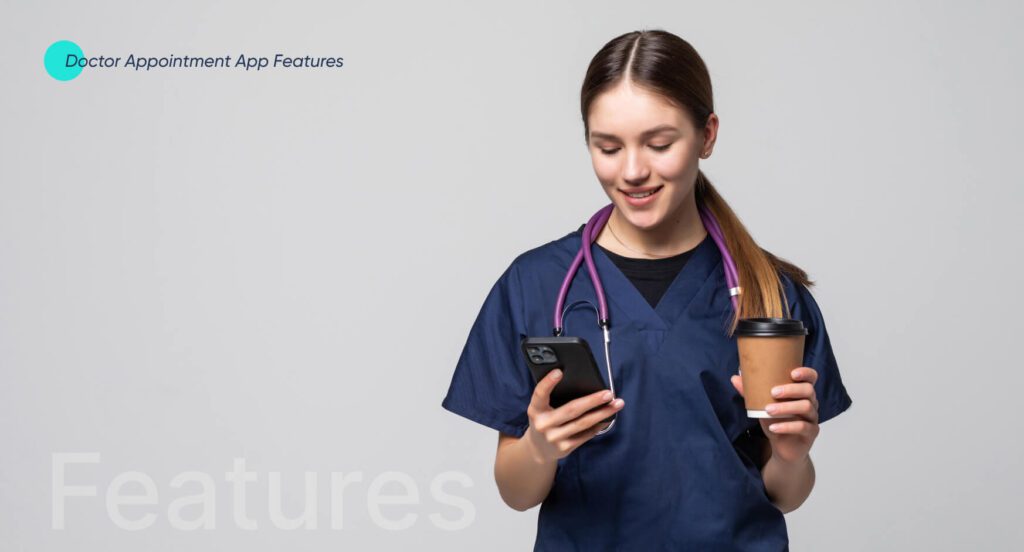
Doctor appointment apps are equipped with a wide range of features to streamline the workflow of doctors and healthcare providers. The following are the key features of doctor appointment apps.
1. User Registration and Profiles
Patients can register their profiles by providing personal information such as name, address, contact details, and date of birth. Other helpful information can include details about medical history. On the other hand, healthcare providers can save their credentials, address, and contact details.
2. Doctor Profiles
Like patients, doctors and healthcare professionals can also register and create their profiles in the doctor appointment apps. It allows users to access specific data about doctors, such as their field, years of experience, education, licenses, and certificates.
3. Appointment Booking
Appointment booking is a crucial feature of the app. It allows patients to search for doctors and healthcare providers, filtering results according to the location, field, and patient reviews. Patients can check the availability of doctors and book appointments at suitable times directly through the app.
4. Reminders
These apps generate automated patient reminders via notifications, SMS, and emails so they don’t miss their appointments. Similarly, doctors receive reminders about upcoming meetings.
5. Telemedicine
Some new doctor appointment apps also offer the convenience of telemedicine. It allows patients to book a virtual appointment. These appointments are greatly enriched by features such as video chat and messaging enable smooth communication between patients and doctors.
6. E-Prescriptions
These apps also allow doctors to create e-prescriptions for patients. Doctors can also send e-prescriptions to the patient’s preferred pharmacies, and save e-prescriptions in patients’ accounts.
7. Reviews and Ratings
These apps also allow patients to write reviews and give ratings to doctors, hospitals, and healthcare providers, depending on their experience. It can help other patients to make insightful decisions about choosing a healthcare professional. Likewise, healthcare providers can use the feedback to improve their services.
8. Insurance Integration
Through these apps, users can integrate their insurance information into the app, making billing and claims processing easier. Similarly, healthcare professionals can verify patient insurance coverage in advance.
9. Health Records
Doctor appointment apps also allow patients to store their health records, test results, prescriptions, and reports securely inside the app. Additionally, doctors can access these records, assisting them in diagnosis.
10. Payment Processing
These apps also provide a payment processing feature that allows patients to make payments for appointments or other medical services directly via the app. It also enables healthcare providers to process payments. These processes are embedded in financial security and transparency.
11. Privacy and Security
During the doctor appointment app development process, you must implement robust encryption and data protection measures to safeguard patient information and comply with healthcare data privacy regulations.
12. Notifications and Alerts
These apps send timely notifications to patients for appointment confirmations, reminders, and updates. Meanwhile, healthcare providers receive alerts for new appointment requests, changes, or cancellations.
13. EHR/EMR Systems Integration
Doctor appointment apps can integrate with electronic health records (EHR) or medical records (EMR) systems. This element facilitates seamless data exchange between the app and healthcare providers’ record-keeping systems.
Ensuring success in healthcare technology.
mbile application with us! ![]()
Advantages of doctor appointment apps
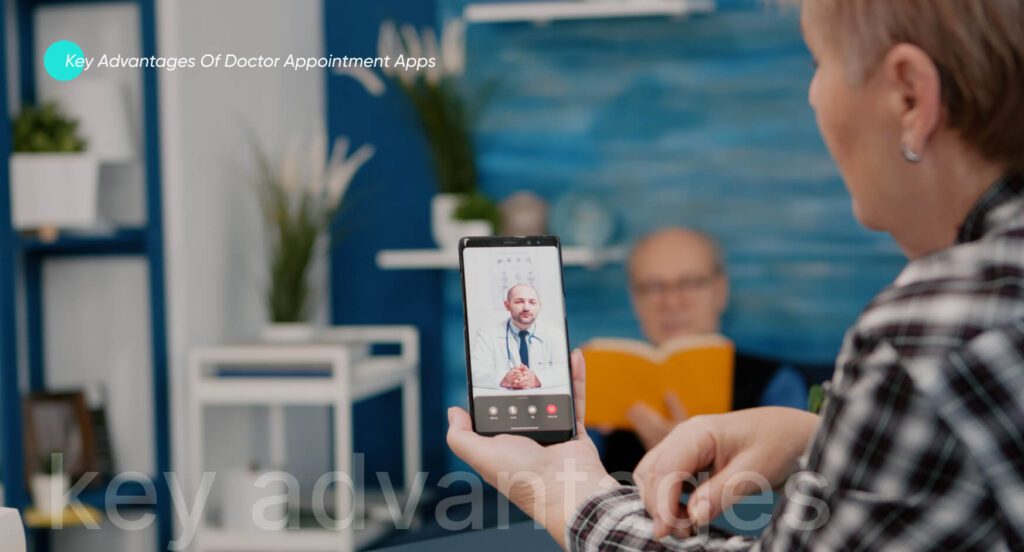
Doctor appointment app development offers numerous advantages to patients and healthcare providers. Let’s explore some crucial benefits below.
1. Convenience
Doctor’s appointment apps conveniently allow patients to schedule, reschedule, or cancel appointments. It reduces the need for phone calls or in-person visits to the clinic.
2. Uninterrupted Accessibility
These apps are accessible 24/7, enabling patients to book appointments, access medical information, or contact healthcare providers anytime.
3. Shorter Wait Times
Appointment apps can optimize scheduling, reducing overbooking and long wait times in waiting rooms. Real-time availability information ensures patients can book slots that align with their schedules, minimizing in-clinic wait times.
4. Appointment Reminders
Many doctor’s appointment apps send automated reminders via notifications or emails so patients don’t miss their appointments.
5. Access to Doctor Information
These apps often provide comprehensive information about healthcare providers, including their credentials, domain, experience, and patient reviews.
6. Prescription Management
Some apps allow patients to request prescription refills, track medications, and receive electronic prescriptions. It streamlines the prescription management process, making it easier for patients to manage their medications.
7.Telehealth Integration
Telehealth or video consultation options are increasingly integrated into doctor’s appointment apps. This feature enables patients to access healthcare remotely, which is particularly useful for follow-up consultations or non-urgent medical issues.
8. Secure Communication
Secure messaging within the app enhances patient communication between a doctor and a patient. Patients can ask questions, seek advice, or request follow-up information securely and seamlessly.
9. Health Record Access
Patients can access their health records through the app, including test results, medical history, treatment plans, and vaccination records.
10. Cost Savings
Doctor appointment app development can also save costs. Healthcare providers can save money by scheduling and conducting administrative tasks through the app.
11. Emergency Features
Some apps include emergency contact information and features that help patients locate the nearest emergency room or urgent care facility in case of emergencies.
12. Personalized Health Management
Doctor’s appointment apps may offer personalized health recommendations, track health metrics, and send reminders for preventive care, vaccinations, and screenings.
13. Data Security and Privacy
Reputable apps prioritize data security and patient privacy, complying with healthcare regulations like HIPAA (Health Insurance Portability and Accountability Act) to protect personal health information.
14. Health Education
These apps often provide users with educational resources and health tips, promoting health literacy and self-care.
Doctor Appointment App Development Process
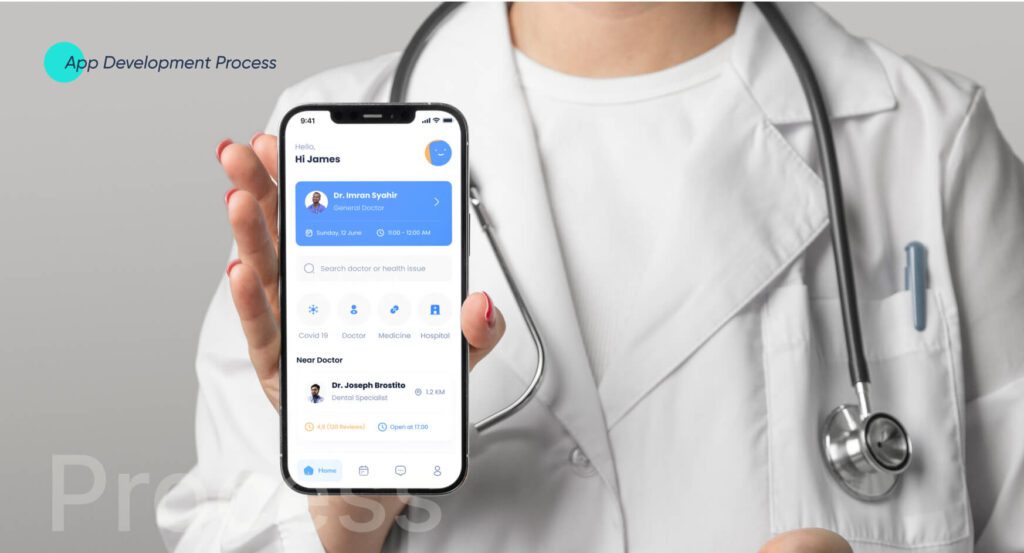
Developing a doctor appointment online app involves a structured multi-stage process. Here are the key steps to establish a doctor appointment app.
Planning and Research
Begin by meticulously understanding the healthcare landscape and identifying the specific problems your app will address. Conduct market research to assess the competition and potential user base. Highlight your doctor appointment app’s objectives, target audience, and unique selling points. Create a feature list, prioritizing essential functionalities such as appointment booking, secure communication, and user data protection. Develop an effective monetization strategy, and choose appropriate methods such as subscription fees, ads, or partnerships.
Design
User experience is paramount in healthcare apps. Create wireframes and prototypes to visualize the app’s layout and navigation flow. Invest in a responsive and user-friendly user interface (UI) design. Your design should ensure vital features like appointment scheduling, secure data access, and clear communication channels. Likewise, ensure that your doctor’s appointment app is compatible with various devices and screen sizes.
Development and Integration
Build the doctor appointment app’s backend infrastructure to handle user data, appointment records, and secure communication. Develop the front end, emphasizing UI elements and user interaction. Implement a robust user registration and authentication system to safeguard personal health information. Create a seamless appointment booking system, allowing users to search for healthcare providers, choose available time slots, and receive appointment confirmations. If offering telehealth services, securely integrate video conferencing or telemedicine platforms within the app.
Testing and Quality Assurance
You are required to exhaustively test your app to identify and rectify any bugs, security, or usability issues. Conduct usability testing with real users to gather feedback and make improvements. Ensure your app complies with relevant healthcare regulations, such as HIPAA, for data privacy. Conduct thorough testing to ensure the reliability and security of your app.
Deployment, Marketing, and Maintenance
Once testing is complete, deploy your app on relevant app stores or make it accessible via web browsers. Develop a marketing strategy to promote the app using social media campaigns, search engine optimization (SEO), and partnerships with healthcare providers. Provide ongoing customer support to address user inquiries and issues. Regularly update the app to fix bugs, enhance security, and introduce new features based on user feedback. Use analytical tools to monitor app performance and user engagement and optimize the app for better user experiences.
Top-Ranking Doctor Appointment Apps
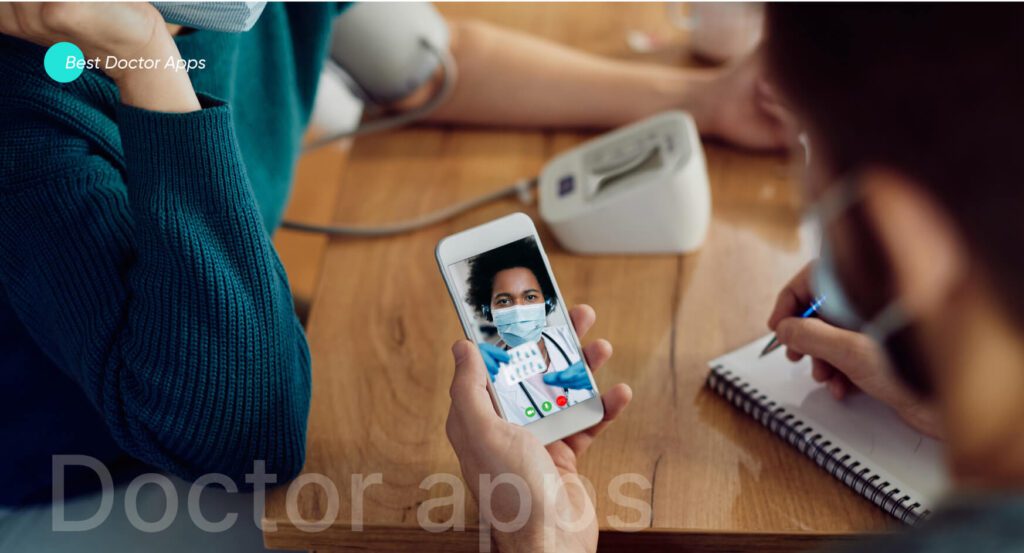
Before commencing the doctor scheduling app development process, it is essential to know about the leading doctor appointment apps. The following is a list of top-performing doctor appointment apps.
ZocDoc
ZocDoc allows users to search for healthcare professionals, view their availability in real-time, and book appointments instantly. It covers many specialties and is available in many cities across the United States.
MyChart
MyChart is an app often associated with healthcare systems and hospitals. It provides appointment scheduling and access to medical records, test results, and secure communication with healthcare providers.
Mayo App
The Mayo Clinic app connects patients with a variety of healthcare resources. These resources include appointment scheduling, access to medical records, health information, and telehealth services.
Doctolib
Doctolib is a popular healthcare booking platform in Europe, particularly France and Germany. It offers appointment booking for doctors, dentists, and other healthcare professionals.
Zesty
Zesty is a doctor appointment booking app in UK that allows patients to search and book appointments with various healthcare providers. These healthcare providers include doctors, dentists, and physiotherapists.
Cleveland Clinic Express Care Online
This app offers virtual visits with healthcare providers from the Cleveland Clinic. Users can schedule video appointments with doctors and receive medical advice and prescriptions online.
What is the cost of doctor appointment app development?
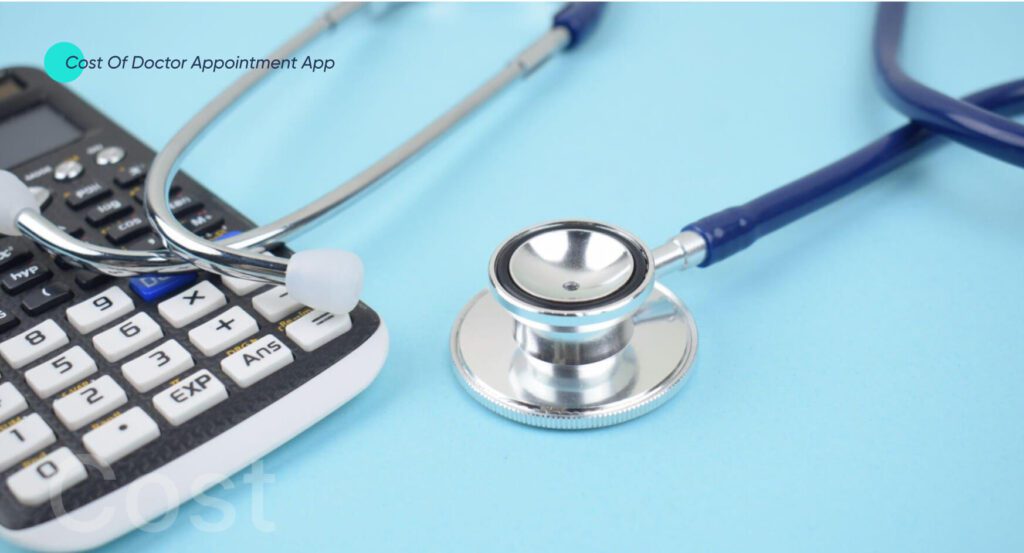
The price of developing a doctor’s appointment app can fluctuate and depends on numerous dynamics such as complexity, features, platforms, technology stack, UI/UX design, and especially the fee of the app development company. A standard doctor appointment app can cost around $50,000, while an advanced doctor’s app can cost you up to $90,000 or more.
Begin your doctor appointment app development project! Contact Coding Pixel ![]()
FAQs
How long does the doctor appointment app development process take?
The timeline depends on the scope and complexity of the project. A basic app can take a few months to complete, conversely a comprehensive app can take anywhere from a few months to a year or more to complete.
Do I need to comply with healthcare regulations when developing a doctor appointment app?
Yes, it’s crucial to comply with relevant healthcare regulations. It includes HIPAA in the United States or equivalent laws in other countries to ensure patient data privacy and security.
How can I monetize a doctor appointment app?
You can generate revenue through subscription models, in-app advertisements, premium features, or by charging healthcare providers a fee for listing their services on the platform.
What are the challenges in doctor appointment app development?
Challenges may include data security, healthcare integration, compliance with regulations, building trust with users, and managing a vast database of healthcare providers.
What is the future of doctor appointment app development?
The future may involve more advanced AI-driven features, predictive health analytics, wearables integration, and increased emphasis on user-centered design for better patient engagement.
Gohar is a seasoned IT writer specializing in leading technologies. He holds a Diploma and Bachelor's degree from the University of London, with professional experience spanning over five years in the IT sector. His expertise involves a keen focus on mobile applications, web apps, blockchain, content management systems, e-commerce, and fintech. Beyond the professional field, Gohar is an avid reader and reads extensively about emerging and innovative technologies.